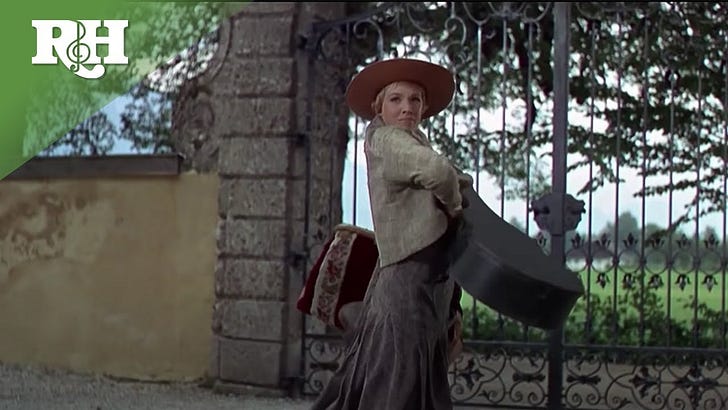Confidence interval, 1/3/20
It is a time-honored year-end tradition of mine, like listening to this Kathleen Battle Christmas CD or checking the Neopets advent calendar, to have my existential crises during winter break. Ensconced in my parents' house, free of the responsibilities of figuring out how to complete all of my assignments and feed myself, I have plenty of time to be seized with paralyzing doubt over what exactly all this hamster-wheeling is for.
This year, though, the crisis came early. (You will note that I'm writing this email during winter break and not during the semester itself.) More weirdly, it was sparked by what can only be described as a barrage of compliments. I spent the semester dutifully writing stories about controversial Chinatown sculptures and New York City's public cemetery and reading Adorno and Ta-Nehisi Coates and Joan Didion. At some point, though, the doubts started setting in, right around the time when the praise started to proliferate.
Maybe it was when one of my teachers gushed about a review I'd written for our first assignment to our class and, unprompted, read aloud the entire first paragraph. Or when, in another class, the teacher asked me to send my finished pieces as examples to the rest of my cohort twice. "I've been thinking: how do I add value for Chelsea?" that same teacher mused to me in a one-on-one meeting. Eventually, my classmates started asking me directly to send them an essay I'd written for our third class (we were all in the same three classes), which was apparently much better than I thought it was.
Sure, the recognition was nice. But at some point, when it became clear that I was sticking out, I started wondering if I was doing everyone a disservice by being there. Maybe my presence was discouraging, I fretted. (Indeed, after our last class of the semester, one of my classmates seemed surprised when I complained about how grueling the semester had been. "It seemed like you did everything so gracefully," she said, tilting her head skeptically.) And, more to the point, if I was such a good writer, then why wasn't I out in the world Being A Writer instead of trapped in school? Maybe I wasn't learning as much as I could've been learning elsewhere. And, and (I thought, beginning to get resentful), why was I losing sleep over my homework—which, as one of my equally stressed-out classmates noted, we were shelling out thousands of dollars for the privilege of completing—when I could've been doing the same thing and making money instead? I did feel better about myself as a writer, but it seemed silly to spend all this money just to buy myself some confidence. Maybe, I joked grimly to myself, I was having a crisis of too much confidence.
This break, I've been thinking about what I've actually learned this past semester, and whether it's been worth it. Partly I've been doing that by taking cues from Brian Eno, pioneering British musician and artist-about-town whose full name is apparently Brian Peter George St John le Baptiste de la Salle Eno. He, along with a painter named Peter Schmidt, created a deck of cards in 1975 called Oblique Strategies. Each card has a sort of koan-like prompt printed on it, like "Repetition is a form of change," or "Mechanicalize something idiosyncratic," or "Look closely at the most embarrassing details and amplify them." The idea is that if you're an artist struggling with some sort of creative block, you can draw from these cards for inspiration.
A few days ago I made my own version of the deck which, for now, is called "Critique Strategies." I leafed through my notebooks from the semester and whenever I came across a useful lesson, I'd write it in black Sharpie on an index card. Things like "Don't discount your interests" and "It's always been this precarious" and "Put the weird stuff in" and "You're not entitled to a job in journalism." And I started realizing that I had learned valuable things in the first semester of my program. They just hadn't registered as lessons, because most of them were about developing one's character, of all things. A sampling:
"People who persist—they have careers"
"Functionality is rewarded—not just talent"
"Endure the fray"
"Own the insecurity"
"Just keep going for as long as you can"
As you can tell, my classes sometimes turned into pep talks—journalism is a pretty demoralizing field to prepare young people for. But there was something genuinely eye-opening about being told that the key to success wasn't necessarily your skill but your ability to handle being rejected over and over again, your "stamina, functionality, a hardy sense of self." In all my years of fancy high-pressure private schooling, the notion of cultivating strength of character never really entered the picture. Now, at least when it comes to achieving "success," I think it's the thing that matters most.
And it turns out I was wrong about confidence, too. "Confidence is your moneymaker," our Reporting teacher told us in one of our final classes. "If you let them get in your head" —them being haters— "that hurts you financially as well as emotionally." Weird as it feels for me to say, I am actually more confident about my writing now than when I entered the program. And that does make it seem worth it.
—Chelsea
--
Shameless self-promotion/sponsored content/advertising section
Remember that phobias piece I wrote about in my last email? Read it here, in the October New York Times for Kids! Also, here's me in the November Times for Kids on plant-based meat, and me in the December Times for Kids explaining what sex and spontaneous erections are (among other bodily functions) in an issue dedicated to how our bodies work. Also, I wrote a sidebar about Reddit for a feature in the NYT Magazine, and a review for the NYT Book Review about one of the most unnerving books I've ever read.

